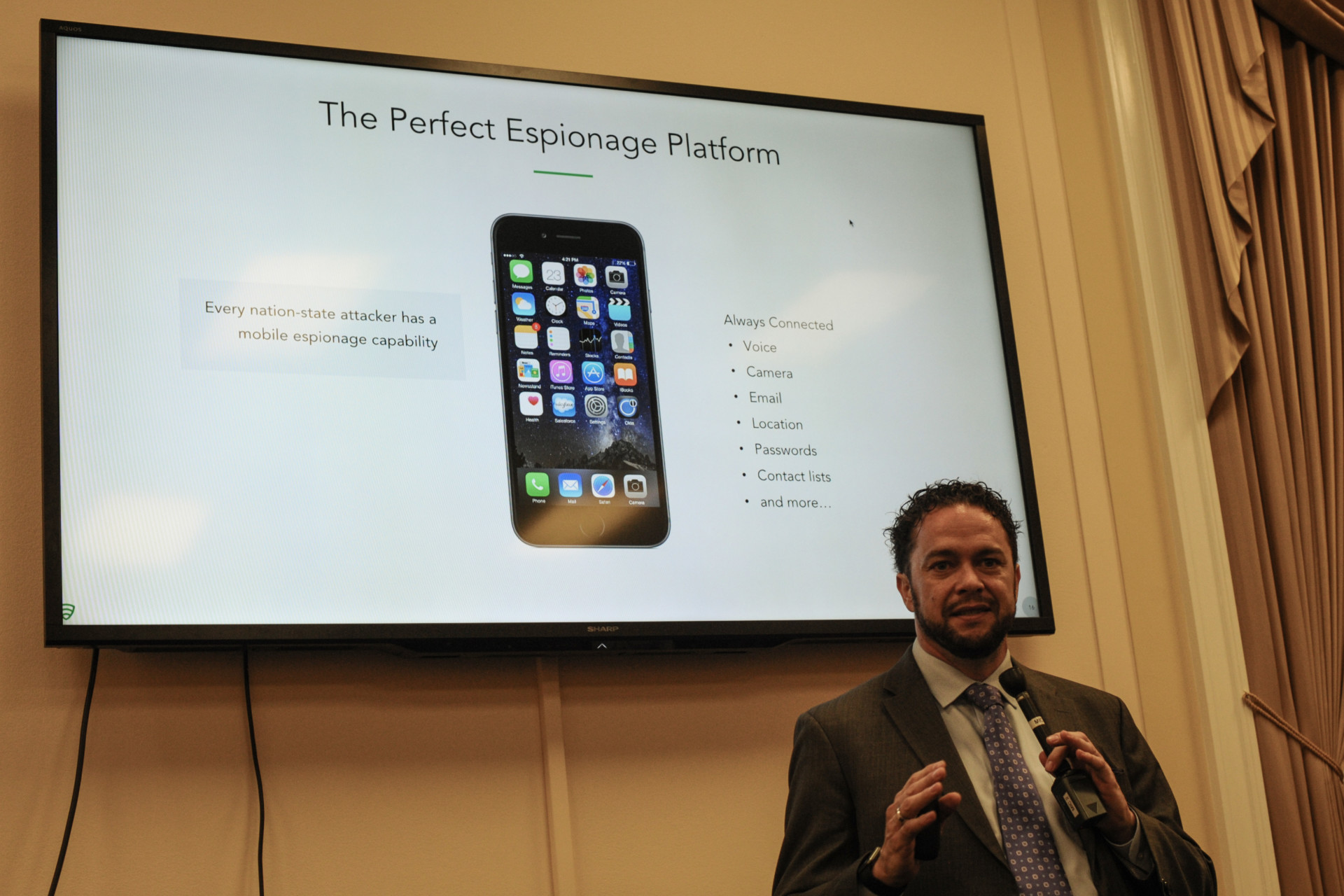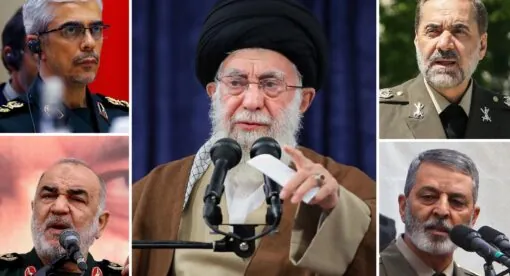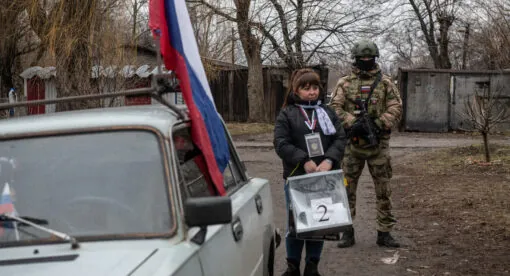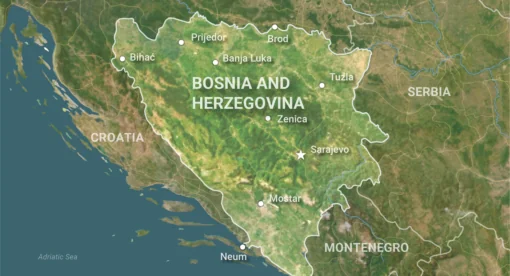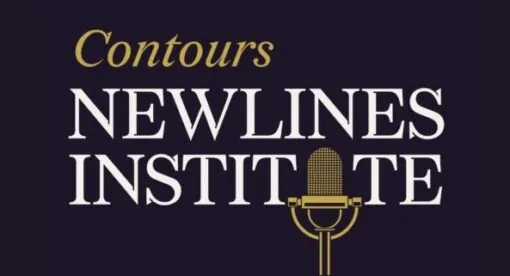Russia continues to actively interfere in the U.S. electoral process as part of its broader disinformation campaign meant to destabilize the west. Russia sees this campaign as central to protecting its national security, because it keeps Russia’s perceived enemies in the West divided and confused while creating openings Moscow can exploit. The U.S. government will likely continue trying to retaliate against Russia for this interference with both ongoing sanctions and counter-information campaigns. Both of these strategies are ineffective in the long run; instead, Washington should follow the established successful model of the Cold War and try to work toward a new detente with Russia to de-escalate the rampant use of propaganda and false information.
The Kremlin’s Perspective
To understand why Russia would undertake the aggressive and seemingly risky effort to destabilize the West, one must understand both Russia and its current leader, Vladimir Putin.
Russia has long believed its security requires a strong deterrent. In the Soviet period, this meant the establishment of the Warsaw Pact and a vast nuclear and conventional arsenal. At the same time, the Soviet Union – or at least its security organs – realized that if they were able to divide their opponents internally, it would weaken those nations’ ability to thwart the Soviet agenda.
This strategy gradually weakened as the Soviet leadership under the USSR’s last leader, Mikhail Gorbachev, sought a more cooperative approach with the West. From the Russian viewpoint, cooperation failed spectacularly. Though the Soviet Union, for the most part, dismantled itself peacefully, the continued cooperation policies under President Boris Yeltsin resulted only in more national humiliation and a recession of Russian power. The Russians had hoped that the United States would still treat the new Russian Federation as a peer power and work in partnership. Instead, the Russians felt Washington sought to dominate them and erode their sphere of influence.
When Yeltsin resigned from office in late 1999, it cleared the way for his then-Prime Minister Vladimir Putin to take power. In Western media, there are often two Putin archetypes: either the ex-KGB thug leading a kleptocratic government, or the maniacal genius plotting a return of the Soviet Union. Though neither representation is entirely accurate, neither is completely false. Putin is, in many ways, a very typical Russian leader; at his core, he appears to be a devout patriot who wants to return his nation from the wreckage of the 1990s to something approaching a respected great power. Putin is a well-known judo aficionado, and the sport serves as an insightful way to view Russia’s strategy. As Dr. Angela Stent notes in Putin’s World, “In judo, a seemingly weaker practitioner can rely on inner strength and force of will to defeat a larger, more aggressive foe. Putting an opponent off balance and taking advantage of their temporary disorientation to strike the winning blow.”
By interfering in the U.S. elections, Russia can undermine the credibility of the U.S. government and with it the U.S.-led world order as a whole.
The Russian M.O.
Russia has a unique perspective on the effectiveness of dissidents’ ability to erode a state and society going back to the Tsarist period, when foreign ideas of constitutionalism and collectivism led to long-running unrest and eventually culminating in the revolutions of 1917. The Soviet Union also saw its internal coherence erode due in part to Western-led human rights and democracy promotion campaigns. Since the collapse of the Soviet Union, Russia has also gradually lost influence in its peripheral states – namely Georgia and Ukraine – due to soft-power democracy promotion. After long being on the defensive against such efforts, in keeping with Putin’s judo mentality Russia has used similar tactics against the West.
Russia has done this through a persistent campaign of disinformation which does not try to create fissures in U.S. society or false narratives. Instead, it identifies pre-existing cleavages and magnifies them. Russia’s disinformation campaign can be broken down into three parts: passive measures (the spread of false information), active measures (the hacking and subsequent leaking of confidential information), and direct outreach (the attempt to use human sources to build links between Russia and prominent organizations).
Passive Measures
The Soviet Union was one of the earliest adopters of the radio and newspapers for propaganda purposes. Russia’s modern intelligence agencies have embraced the architecture of social media. Throughout 2016, Russian troll farms disseminated both left- and right-wing political narratives on a range of subjects. The operation was run, in large part, out of an organization known as the Internet Research Agency. Though initially based in St. Petersburg, the organization appears to have shifted its operations to contractors overseas – particularly in sub-Saharan Africa, with Facebook and Twitter identifying Internet Research Agency-style false social media networks originating in Nigeria and Ghana.
The agency would often create online communities on Facebook or Twitter. It would then purchase online ads and promote the ideologies of these communities. U.S. investigators found that the Internet Research Agency likely purchased 3,000 political ads on Facebook alone while maintaining 470 accounts. Through its social media strategy, Russia was able to fertilize the existing divisions in the American social media landscape.
Active Measures
Supporting the online propaganda of the Russian passive measures were Russia’s well-executed hacking attacks against the Democratic National Committee and John Podesta, a prominent member of the Hilary Clinton campaign. These hacks used Wikileaks as a proxy to disseminate large quantities of confidential but mostly benign data. However, once cherry-picked parts of the data were released, they were used to support and further pre-existing false narratives. Out of context, conversations furthered conspiracy theories that ranged from a Democratic National Committee conspiracy to deny Bernie Sanders the nomination to supporting the outlandish “Pizzagate” story.
Again, Russian passive measures helped to boost these narratives, but primarily they just served to amplify the U.S.-based voices raising these narratives. Though each of these false narratives fell apart under anything approaching objective scrutiny, Russia read U.S. society correctly. In a time of fear, existential anger, and deep distrust in the so-called elites, a large portion of Americans were vulnerable to at least partially buying into one or several false narratives. There has not been any large-scale hacking to date in the 2020 election. This is likely due in part to better cybersecurity, but it is also likely that Russia does not see the need to steal information to create false narratives; it just needs to elevate the false narratives already preached in the United States.
Direct Outreach
The final and perhaps least extensive aspect of Russia’s disinformation campaign was its efforts to build personal connections with the Trump campaign and the National Rifle Association. In addition to potentially forging connections with a future administration, these efforts furthered Russia’s goals of undermining the U.S. government. Two notable examples of the strategy were the 2016 Trump Tower meeting in which representatives of the Trump campaign met with two Russian lobbyists with known ties to the Russian government and prominent Russian oligarchs. The other is the efforts by Alexander Torshin, a well-known oligarch, and his associate Maria Butina to build a working relationship with the National Rifle Association.
There is no evidence either of these efforts made any tangible progress. Still, the subsequent investigations and jailing of some of those involved have served to further undermine confidence in the government among the American public and U.S. allies and also diminish the independence of institutions. The new “Spygate” false narrative that has emerged from the Mueller probe, which alleges investigations into the Trump campaign by the Obama administration, was politically motivated and is likely a narrative Russia will seek to exacerbate. Still, it is one that originated from the Trump White House.
U.S. Countermeasures
It is possible to force Russia to cease its active interference in U.S. politics, but doing so will be difficult and is unlikely to undo the damage already inflicted on American society. Countering Russia’s disinformation is difficult because the United States cannot retaliate in kind. Russia lacks any sort of pro-Western opposition for Washington to support. The consensus in Russia is that it must remain a strong state, and the best-known opposition leader, Alexi Navalny, has maintained his credibility by being as anti-Western as Putin.
So if the United States cannot hack Russia’s elections, what can it do? Washington can aggressively threaten Russia’s vulnerable flanks by moving to accelerate Georgia’s accession to NATO and increasing military and financial support for Ukraine. Though both efforts will anger Russia, they will have a substantial impact on Moscow’s policy. At the same time, the United States can also push harder for free and fair elections in the Central Asian states and increase its ties in that region. These nations are eager to use the United States to balance against Russia and China, and although none are strong democracies, all are heading toward a generational change in leadership and have largely acknowledged the need to gradually allow “loyal” oppositions to emerge.
The desired result of these efforts is for Washington to force Moscow to the table and negotiate a comprehensive framework of what is and what is not acceptable behavior in one other’s elections. The end goal of these negotiations should be to create a framework for the de-escalation and management of the information warfare that is being waged between the United States and Russia, just as the two parties found a way to prevent armed warfare between them.
Jeff Hawn is an independent geopolitical risk consultant and international history Ph.D. candidate at the London School of Economics. His research is centered on the Russian constitutional crisis of 1993 and the emergence of the post-Cold War world order. He Tweets at @jeff_hawn.
The views expressed in this article are those of the author and not an official policy or position of the Newlines Institute.

